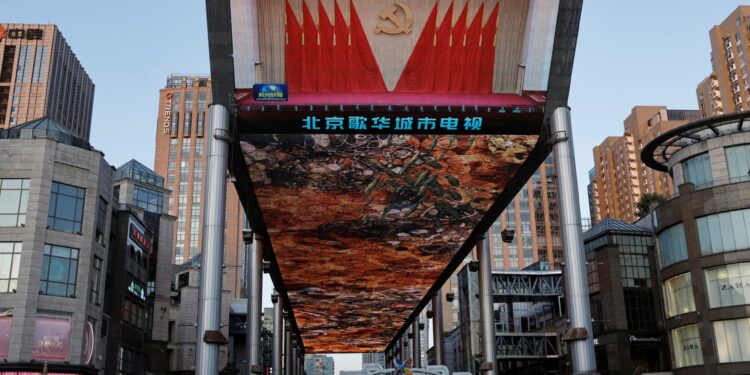The Economist magazine discussed the issue of the Chinese authorities’ increasing resort to privatization as a means of closing the country’s growing financial deficit.
During a recent visit to his hometown of Laishi (eastern China), Guo Ping (a pseudonym) was surprised to find that the local government had sold off a number of state-owned assets, including water tanks.
The move reflects the difficult financial situation facing cities and towns across China, where local government revenues have fallen sharply, the newspaper notes.
As officials tried to revive the economy, the country saw a decline in tax revenues. The real estate crisis made matters worse, directly affecting the ability of local authorities to sell land use rights, which were a major source of income.
In 2023, land-related revenues fell to 26% of total local authority revenues, compared to 36% in 2020.
As revenues have declined, cities have begun looking for new ways to boost their revenues. Some areas have begun imposing new fees and fines. For example, in Wuzhou, traffic fines now account for about 50 percent of the city’s revenue, compared with less than 8 percent in most other cities.
resort to selling assets
In an effort to ease financial pressures, the central government in 2022 called on local authorities to “revitalize” their assets, meaning sell, lease or refinance them, The Economist notes. Last year, China’s State Council instructed 12 debt-ridden provinces to “break pots and sell iron,” a term used to refer to greater efforts to raise funds.
Guangzhou, for example, raised 370 million yuan (about $50 million) by allowing water and bus companies to sell land plots. And in Chongqing, a neighborhood announced in August that it would sell assets to ease a debt crisis.
In Qingdao, which includes Laishi, state-owned asset sales on the local stock exchange reached 5.9 billion yuan ($832 million) last year, more than double the previous year. The sales included rights to use seven reservoirs with contracts lasting up to 40 years.
Challenges and criticisms
However, the process of selling government assets faces many challenges, according to the Economist. One of the most prominent is determining the actual ownership of assets, especially those that are more than two decades old and lack official documentation. The consolidation and expansion of cities over the past decades has also made it difficult to determine the actual owner of many of these assets.
There are also legal risks surrounding such deals, according to the newspaper, as buyers fear that such sales could be subject to future investigations for corruption or selling assets at prices below their real value. In addition, private buyers fear that they will be accused of acquiring assets at very low prices, or that the deal involves risks that make it uneconomical.
These sales have been widely criticized. For example, documents for the sale of two reservoirs in Laishi showed that the buyer was another state-owned company in the same city, suggesting that the transaction was not a true privatization.
These moves raise questions about the effectiveness of these measures in solving the long-term debt problem. Guo expressed his dissatisfaction with the sales, noting that they reflect a “gradual economic deterioration.”
These efforts remain, according to the Economist, part of a broader attempt by the Chinese government to raise revenues amid growing economic challenges. However, the question remains whether these measures will be enough to address the country’s deep financial problems.



